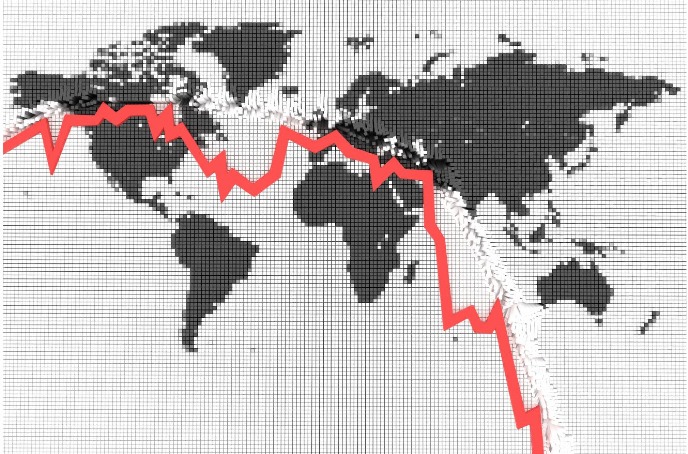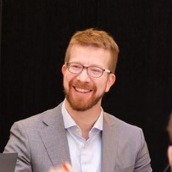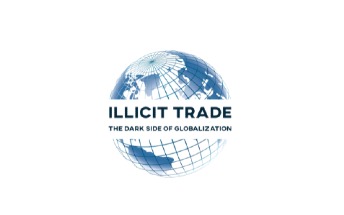Illicit Trade

Join us for an immersive learning experience at CSDS of the Vrije Universiteit Brussel (VUB) from 7 to 11 July 2025 exploring the complex world of illicit trade and the future of geopolitics and global supply chains. Organized by the University of Groningen in collaboration with the Global Initiative against Transnational Organized Crime (GI-TOC), and hosted by CSDS at the VUB, the Summer School on Illicit Trade offers a unique opportunity to deepen your understanding of this pressing global issue and explore strategies for combating it. Immerse yourself into the multifaceted realm of illicit trade through our comprehensive one-week course set to take place at the prestigious VUB from 7-11 July 2025.

Participants will engage in a dynamic blend of academic and practical lectures, workshops, case studies, and discussions, led by esteemed experts and practitioners in the field. Explore the intricate economic, social, and security implications of illicit trade, gaining a nuanced understanding of its far-reaching effects on industries, communities, and global stability.
Practical information
|
Dates
|
7 - 11 July 2025
|
|
Location
|
Vrije University Brussels, Brussels, Belgium
|
|
Fee
|
€ 650 for students € 900 for professionals The fees include a final dinner on the last course day. Discussions about lunch and snacks during the course are still going on so this will be added at a later stage if it is included.
|
|
Level
|
BA (final year), MA, PhD and private sector practitioners |
|
Academic coordinators
|
The Summer School is organized by the University of Groningen in collaboration with the Global Initiative against Transnational Organized Crime (GI-TOC) and hosted by the Centre for Security, Diplomacy and Strategy of the Vrije Universiteit Brussel.
The contacts for the respective organisations are Francesco Giumelli and Tim Wittig.
|
|
Contact
|
Illicittrade@rug.nl |
Requirements
The Summer School is designed for students in their final year of undergraduate studies, master’s students, and PhD students in Law, Political Science, International Relations, Economics, Social Sciences, or other relevant disciplines, who are interested in learning more about illicit trade. It is also designed for professionals working in governmental institutions, local authorities, or international and non-governmental organizations, who are seeking to deepen their understanding of current illicit trade issues.
It is expected that the participants have a sufficient command of the English language to actively participate in the discussions and to present their own work in English.
Learning outcomes & workload
The learning objectives of the Summer School are that, upon completion, participants will:
-
Have foundational knowledge of key concepts associated with illicit trade.
-
Be able to utilize important contemporary investigative techniques, such as Open-Source Intelligence (OSINT) and Network analysis.
-
Have practical insight on best practice for local, national, and international institutions and stakeholders in their efforts to combat illicit trade.
-
Have access to a network of fellow peers, experts, and practitioners active in the field of illicit trade.
Workload
-
Attendance of lectures: 5 x 4 = 20 hours.
-
Preparation for lectures: 5 x 2 = 10 hours.
-
Attendance of seminars: 5 x 2 = 10 hours.
-
Preparation for seminars: 5 x 1 = 5 hours.
-
Preparation for exam: 390 pages / 10 = 39 hours.
Upon successful completion of the programme, the Summer School offers a Certificate of Attendance that mentions the workload of 84 hours (28 hours corresponds to 1 ECTS). Students can apply for recognition of these credits to the relevant authorities in their home institutions, therefore the final decision on awarding credits is at the discretion of their home institutions. We will be happy to provide any necessary information that might be requested in addition to the certificate of attendance.
Introduction to lecturers

Dr. Francesco Giumelli
Francesco Giumelli is Associate Professor of International Relations at the Department of International Relations and International Organization (IRIO) of the University of Groningen. He is the Chair of the Cost Action Globalization, Illicit Trade, Security and Sustainability (GLITSS) and he is the Director of the research theme Development, Security and Justice under the Agricola School for Sustainable Development at the University of Groningen.
Francesco is member of the Editorial Board of the Journal of Illicit Economies and Development (JIED) and of the Central European Journal of International Security Studies (CEJISS). His research features in the Global Initiative against Transnational Organized Crime (GI-TOC). He is the author of International Sanctions (Mulino 2023), The Success of Sanctions: Lessons Learned from the EU Experience (Routledge, 2013) and Coercing, Constraining and Signalling: Explaining UN and EU Sanctions After the Cold War (ECPR Press, 2011). He published on sanctions, private military, and security companies in the Journal of Common Market Studies, International Affairs, International Relations and International Peacekeeping. Beyond his work on sanctions, he studies issues concerning the role of private actors in security governance and illicit trade.

Dr. Tim Wittig
Tim Wittig holds a PhD in International Relations from the University of St Andrews, and is a senior research fellow at the University of Groningen. His research focuses on identifying and researching the social determinants of illicit trafficking, threat finance, and transnational organized crime, and how they intersect with other issues of international and environmental security. He is the author of numerous publications on these topics, including the book Understanding Terrorist Finance (Palgrave: 2011). In parallel to his academic work, Dr. Wittig has extensive experience as a practitioner, having worked for several years in the NGO sector on counter wildlife trafficking initiatives, in the defense/national security sector on counter threat finance and related issues, and as a consultant to public, private, and charitable sector clients. Prior to Groningen, Dr. Wittig has held a variety of university research and faculty positions, including at Johns Hopkins University, U.S. National Defense University, the University of Amsterdam, and the University of St Andrews.
Pim Geelhoed

Pim Geelhoed is associate professor in Criminal Law and Criminal
Procedure. He studied Law at Leiden University, and received his PhD
from that university in 2013. Since 2017, he has been affiliated with
the University of Groningen. He is an expert in European criminal law
and organized crime. His activities in teaching and research mainly
revolve around topics related to the Europeanisation of criminal law,
comparative criminal law and procedure, and prosecutorial
policy-making. He currently leads a research group focusing on illicit
trade, and regularly advises Dutch and European governments on
criminal law matters. Next to his academic work, he is an ad hoc judge
at the Court of Appeal in Leeuwarden, a member of the Meijers
Committee (a committee of experts in European immigration, refugee and
criminal law) and a member of the Steering Committee of the
International Association for the Study of Organised Crime.
Application procedure
To apply, kindly fill out the online application form. Please include the following documents with your application:
-
CV
-
Letter of motivation (max 1 page)
Applications will be evaluated on a rolling basis until all available spots are filled. Therefore, we highly recommend submitting your application as soon as possible to secure your place in the program.
The last moment to apply is 31 May 2025.
Cancellation and refunds
- Participants who cancel more than 4 weeks before the start of the course are liable to pay 15% of the full course fee, unless the Summer School in question decides otherwise.
- Participants who cancel within 4 weeks before the start of the course are liable to pay the full course fee, unless the Summer School in question decides otherwise.
- Participants who withdraw during the course are liable to pay the full course fee, unless the Summer School in question decides otherwise.



